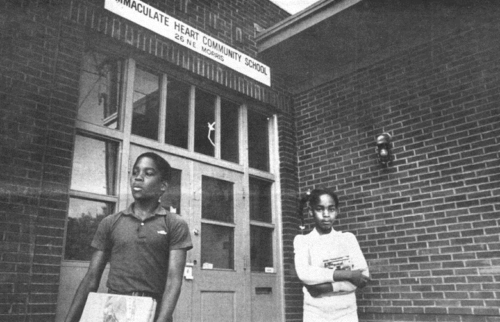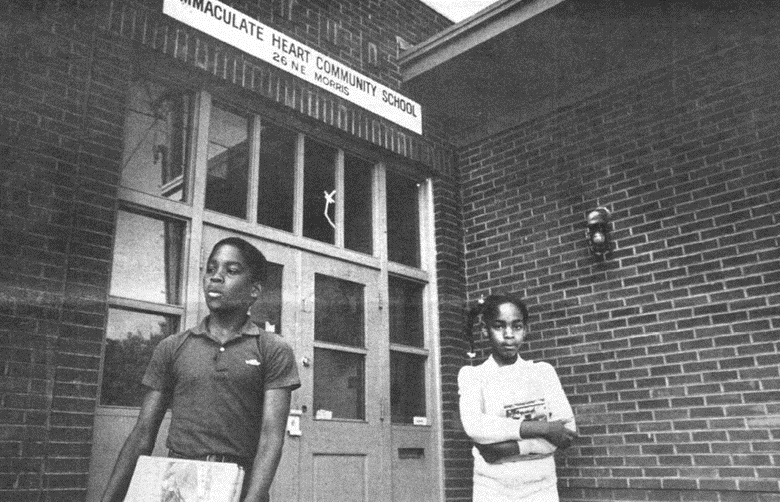God created all men and women in the divine image and likeness. So, all humans deserve high respect and great dignity. No one is to be held above another. This is another area in which we have greatly disappointed our loving God.
We could issue platitudes and overreaching promises this month. Instead, we’ll simply offer a reminder that we Oregonians have serious work to accomplish in partnership with our Black community.

Immaculate Heart third grader Ronald Perry and fourth grader Kandy Raiford leave the school for the last time in 1986. Immaculate Heart was one of five inner-city Portland Catholic schools to close in the 1980s. (Catholic Sentinel archives)
A note on Black History Month
A lawsuit underway in North Portland shows us that powerful interests in the 1960s and 70s may have inappropriately persuaded Black residents to leave their homes in the name of urban renewal. Before that, our city was shaped by redline policies, through which banks effectively blocked Black home ownership.
Our friends down Powell Boulevard at St. Ignatius Catholic Parish have been studying racism with a brave spirit. They discovered that even if we don’t feel racist, many of us have economic advantages now because, for example, white veterans after World War II got help buying homes while Black veterans were stymied.
Even our church committed the social sin of racism in decades past. Black faithful, it appears, were turned away from many kinds of Catholic institutions. In the 1980s, when it became necessary to reduce costs, Catholic schools that served Black students were the first to go.
Despite these barriers, Black Oregonians have made important contributions. We remember strong justice-minded political leaders like Bill and Gladys McCoy, Margaret Carter, Avel Gordly and Jackie Winters. We have stood in awe at the gifts of artists like bassist Esperanza Spalding and drummer Mel Brown. Our local Catholic Church was shaped by the devotion and prophetic voices of the McCoys and the great educator Bob Hughley, a grandson of slaves who rose in the civil rights movement and became one of the most prominent lay leaders in local Catholicism.
Now, the course of action is clear. We must reach out to today’s Oregon Black leaders for guidance on creating a more just and inclusive society.
